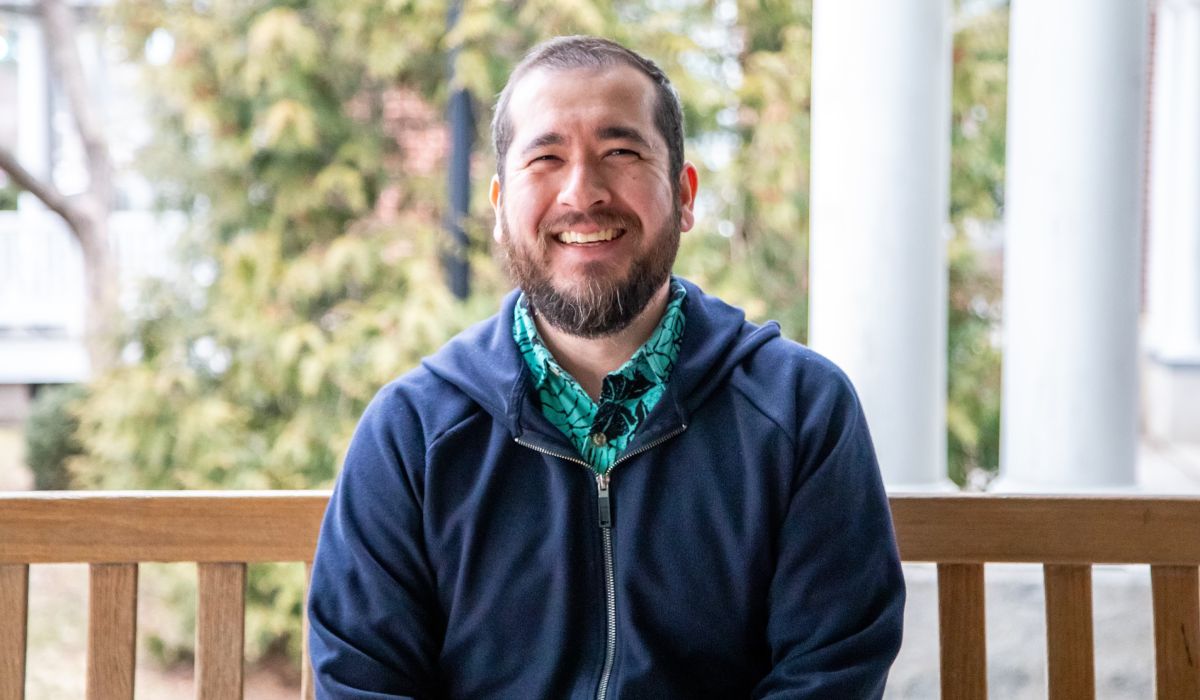
Economics Prof. James O’Brien was drawn to Gettysburg College for its emphasis on scholarly activity and student-faculty connections. His research in environmental economics and his conversational teaching style prioritize real-world applications to create a lasting impact on his students and the world.
When Economics Prof. James O’Brien interviewed at Gettysburg College in 2014, he was searching for a place where he could make a meaningful impact. “I really drank the liberal arts Kool-Aid,” he joked. “Gettysburg is a small, residential community of scholars, colleagues, and students, and I love being part of it.”
During his first campus visit, O’Brien, originally from St. Paul, Minnesota, met Economics Profs. Brendan Cushing-Daniels and Linus Nyiwul. Their views on teaching and research resonated with him, but there was one defining moment that solidified his decision to come to Gettysburg. As Cushing-Daniels walked him between interviews in the economics building, he paused to chat with a student. “It was clear that faculty here don’t just know their students’ names—they know them as individuals,” he recalled, “That personal connection is special.”
As an environmental economist, O’Brien was drawn to the field for its blend of human impact and practical application. His primary research examines the value of a statistical life—a concept used to quantify the benefits of policies aimed at reducing morality risks. “Estimating costs can be easy,” he explained, “but how do you measure the benefits of fewer people getting sick or dying? That’s where my research comes in.”
In the classroom, O’Brien prioritizes that same sense of human connection. He strives to create a supportive environment where his students can feel comfortable asking questions. “I know it can take a lot for students to raise their hands when they are confused,” he said. “I always try to foster a space where they feel safe speaking up.”
O’Brien’s teaching style is casual and conversational, blending coursework with real-world discussions. “Economics can be challenging, but I try to keep the classroom light,” he explained. “I talk with my students about the material, but also about life.”
For O’Brien, the impact of student connections extends beyond graduation. “I love getting messages from former students five or ten years down the road saying, ‘Hey, Professor O’Brien, I just got a new job in D.C. and wanted to touch base.’ It’s one of my favorite things.”
Learn more about the value that Gettysburg places on community and connections.
Related Links:
By Brooke Askin ’25
Photos by Ashley Carbonier ’25
Posted: 07/07/25